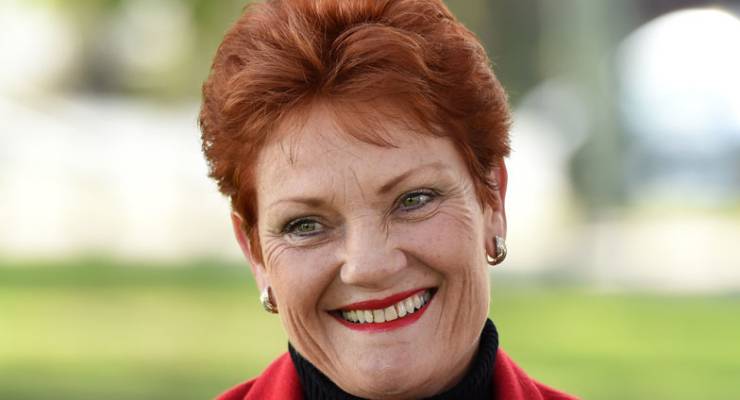
The return of One Nation to the Australian Parliament comes as a surprise only to those who have not been paying attention. Which of course turns out to be most of the nation’s crumbling political and media establishment.
The particular circumstances of the double dissolution gave Pauline Hanson an easy run, but the groundwork was laid long before the election was called. The centre ground of Australian politics has been dragged so far to the right that (as Hanson herself has noted) there is very little to differentiate One Nation and other elements of the so-called patriots’ movement from right-wing members of the Liberal Party.
One does not have to step outside the political mainstream in order to vote for a right-wing and explicitly racist candidate, so perhaps it’s forgivable that so many commentators assumed that Hanson and her ilk had been made safely redundant. It is less forgivable, however, for them to now claim that the result is not really about racism at all.
[Guess who’s back? Top 10 moments of Pauline Hanson]
Yes, it’s the economy, stupid. The impact of the mining boom has hit home in Australia, and the death knell of neoliberalism is being sounded around the world. But it’s never just about the economy, stupid. One Nation’s racism is very explicit, and if it was patronising to mock Hanson’s accent and fish-and-chip shop background back in 1996, it’s even more patronising to claim that her supporters didn’t really know what they were voting for on Saturday. And it is even more patronising — in fact, insulting — to expect racism’s targets to sit back and watch as racism is placated and accommodated and explained away, yet again.
We have spent years listening to explanations about why the Cronulla riots were not about racism, why the offshore detention of asylum seekers is not racist, and of course why anti-Muslim racism is not racist because, of course, Islam is a religion and not a race. We do not need to set out on listening expeditions to learn what racism is about, nor we do need to be told not how not to antagonise racists. Not antagonising racists is a skill that we learn early in life, in order to avoid being expelled from school or beaten up or arrested or all of the above.
[The worst result of election night: the return of Hanson]
Hanson’s return to power should be seen in association with the rise in visibility of the so-called patriot movement, whose rallies she has addressed and whose policies she has taken on board. Hanson’s claim that Islam is a political ideology rather than a religion is not some clueless theory that she dreamed up all by herself. It was imported to Australia by Geert Wilders during his 2013 tour on behalf of the Q Society.
The fact that most of Hanson’s supporters are a familiar type — the common-or-garden variety racist uncle or aunt you’d just as soon disown but can’t — should not prevent us from locating One Nation as an element in the global rise of right-wing extremism. The fact that she appears as a moderate in comparison to brawlers like the United Patriots Front or the True Blue Crew highlights, rather than mitigates, the need to develop an effective anti-racist strategy.
One final warning. I would guard against the impulse to see One Nation’s resurrection in terms of a victim’s nostalgia for a mythical past. Of course, Hanson’s persona as the champion of the underdog is (almost) as fundamental to her success as her racism. However, in observing the rise of the patriots’ movement over the past couple of years, the mood is one of triumph and elation rather than defeat and resentment: vanguardism, I’ve often thought — the belief that the group forms the cohort of a coming revolution. The patriots, including One Nation, are not just seeking to recapture the past. They’re looking to the future — and they believe that it belongs to them.








Crikey is committed to hosting lively discussions. Help us keep the conversation useful, interesting and welcoming. We aim to publish comments quickly in the interest of promoting robust conversation, but we’re a small team and we deploy filters to protect against legal risk. Occasionally your comment may be held up while we review, but we’re working as fast as we can to keep the conversation rolling.
The Crikey comment section is members-only content. Please subscribe to leave a comment.
The Crikey comment section is members-only content. Please login to leave a comment.